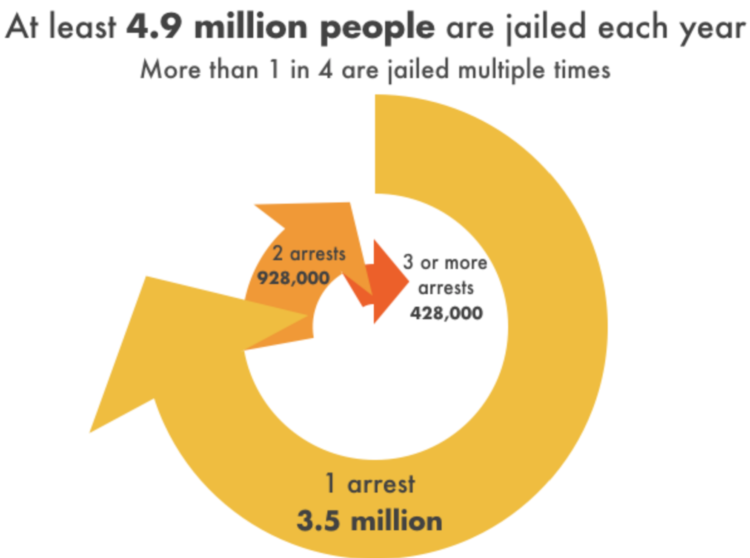Above Photo: The fence that surrounds Cook County Jail. (Shadowproof)
The most popular statistic regarding the United States’ prison system is that there are 2.5 million people incarcerated. However, this figure significantly under-represents the number of people caged in this country each year.
According to a new analysis released by the Prison Policy Initiative, at least 4.9 million people are arrested and jailed each year. Those individuals are disproportionately poor, Black, and lack access to education and health care.
Researchers say the 4.9 million figure represents a minimum estimate, as data on arrests and incarceration in the U.S. are woefully inadequate at every jurisdictional level.
PPI obtained data from the National Survey on Drug Use and Health, which excludes groups of people that may have significant contacts with the system, such as those who are homeless and do not use shelters. It was “not possible to estimate how many people arrested in 2017 were excluded from the survey,” according to the organization, so the number of arrests is likely far greater.
Nonetheless, of those 4.9 million people jailed each year, researchers found 930,000 people were arrested twice and 430,000 were arrested three times or more. As the number of arrests increases, disparities in race, income, education, health, and ability become more pronounced.
Black people represented 28 percent of people arrested twice in the past year, despite making up roughly 13 percent of the population. When looking at people who were arrested three or more times, the percentage of those who are Black increased to 42 percent.
Eighty-three percent of people arrested three or more times in the past year had incomes below $20,000 and half had incomes below $10,000.
Three-quarters of people with three or more arrests in the past year had a high school education or less.
People with two arrests were four times more likely to be unemployed than those who were not arrested in the past year.
Eighty-eight percent of people, who endured multiple arrests per year, were not picked up for serious violent offenses.
Over half of the people arrested twice reported a substance use disorder compared to 61 percent of those arrested three or more times.
More than a quarter of those arrested three or more times had a serious mental illness. This segment was more likely to have been diagnosed with chronic health conditions and use emergency rooms multiple times in the past year.
The prevalence of HIV diagnosis was 11 times higher among people with multiple arrests. At the same time, these individuals were less likely to have health insurance than those who were not arrested.
That so many vulnerable and marginalized people cycle through jails each year should not be understood as a failure or aberration of the system. Instead, it is a sign of the system’s design and its function as a tool of social exclusion for groups that have been historically oppressed in America.
Additionally, the findings further underscore how those with overlapping marginalized identities are even more likely to be impacted by systems of incarceration.



